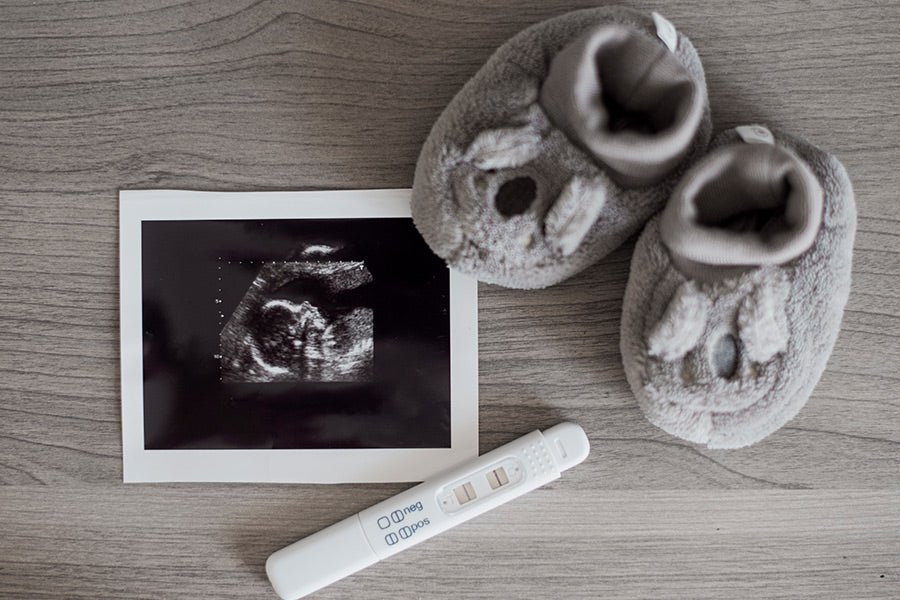Natural Ways to Boost Fertility: Unlocking the Power of Nature

For many couples, the journey to parenthood can be both exciting and challenging. While modern medical interventions like IVF and fertility treatments have proven effective, there is a growing interest in natural ways to boost fertility. These methods not only support reproductive health but also promote overall well-being. In this article, we’ll explore evidence-based, natural strategies to enhance fertility, including home remedies to get pregnant, lifestyle changes, and dietary adjustments.
Understanding Fertility and Its Natural Foundations
Fertility is a complex interplay of hormonal balance, physical health, and emotional well-being. It involves the ability to conceive and carry a pregnancy to term, and it can be influenced by a variety of factors, including age, genetics, lifestyle, and environmental exposures. Both men and women can experience fertility challenges due to issues like stress, poor diet, lack of exercise, or underlying health conditions such as polycystic ovary syndrome (PCOS) or low sperm count. Following a diet to enhance fertility can play a crucial role in supporting reproductive health and improving the chances of conception.
The good news is that the human body is remarkably resilient, and small, consistent changes can have a profound impact on reproductive health. Natural fertility boosters work by addressing the root causes of infertility, such as hormonal imbalances, oxidative stress, and inflammation. These methods are not only effective but also safe and sustainable, making them an attractive option for couples who prefer to avoid invasive medical procedures.
For women, fertility is closely tied to the health of the menstrual cycle, ovulation, and the uterine environment [1]. For men, sperm quality, count, and motility are critical factors. By adopting natural remedies for fertility, couples can improve their chances of conception while also enhancing their overall health.
Nourish Your Body with Fertility-Friendly Foods
What you eat plays a pivotal role in reproductive health. A nutrient-rich diet can improve egg and sperm quality, regulate hormones, and enhance overall fertility. The connection between diet and fertility is well-documented, with research showing that certain foods can act as natural fertility boosters. Here are some key dietary recommendations to consider:
1. Antioxidant-Rich Foods
Antioxidants are essential for protecting reproductive cells from oxidative stress, which can damage eggs and sperm. Foods high in vitamins C and E, zinc, and folate are particularly beneficial. For example:
- Berries: Blueberries, strawberries, and raspberries are packed with antioxidants.
- Nuts and Seeds: Almonds, sunflower seeds, and pumpkin seeds provide vitamin E and healthy fats [2].
- Leafy Greens: Spinach, kale, and Swiss chard are rich in folate, which is crucial for DNA synthesis and cell division.
- Citrus Fruits: Oranges, lemons, and grapefruits are excellent sources of vitamin C.
2. Healthy Fats
Healthy fats, particularly omega-3 fatty acids, play a vital role in hormone production and improving blood flow to reproductive organs [3]. Incorporate the following into your diet:
- Fatty Fish: Salmon, mackerel, and sardines are rich in omega-3s.
- Flaxseeds and Chia Seeds: These plant-based sources of omega-3s are ideal for vegetarians and vegans.
- Avocados: Packed with monounsaturated fats, avocados support hormone balance and overall health.
3. Whole Grains
Complex carbohydrates like whole grains help regulate insulin levels, which is crucial for hormonal balance. High insulin levels can disrupt ovulation and reduce fertility. Opt for:
- Quinoa: A complete protein that also provides fiber and essential nutrients.
- Oats: A great source of energy and fiber.
- Brown Rice: A healthier alternative to refined grains.
4. Plant-Based Proteins
Research suggests that replacing animal proteins with plant-based options can improve fertility outcomes [3]. Consider adding:
- Lentils and Beans: High in protein, fiber, and iron.
- Tofu and Tempeh: Excellent sources of plant-based protein and phytoestrogens, which can support hormonal health.
5. Fertility Superfoods
Certain foods are particularly renowned for their fertility-enhancing properties:
- Pomegranates: Rich in antioxidants and believed to improve blood flow to the uterus.
- Walnuts: Known to boost sperm quality in men.
- Eggs: A great source of choline, which supports fetal brain development.
By incorporating these fertility-friendly foods into your diet, you can create a strong foundation for reproductive health. These dietary changes are among the most effective natural remedies for fertility, offering a safe and sustainable way to enhance your chances of conception.
The Role of Herbal Supplements
Herbs have been used for centuries as natural remedies to get pregnant fast. While scientific research on some herbs is still evolving, several have shown promise in supporting fertility:
- Maca Root: Known for its hormone-balancing properties, maca root can enhance libido and improve sperm quality. Some individuals also use a hormone supplement alongside maca root to further support hormonal balance and reproductive health.
- Vitex (Chasteberry): This herb helps regulate menstrual cycles and supports ovulation in women [4].
- Ashwagandha: An adaptogen that reduces stress and improves sperm count and motility in men.
- Red Clover: Rich in phytoestrogens, red clover can improve uterine health and hormonal balance.
Always consult a healthcare provider before incorporating herbal supplements into your routine, as they may interact with medications or underlying conditions.
Lifestyle Changes to Support Reproductive Health
Your daily habits significantly impact fertility. Here are some lifestyle adjustments that can act as natural fertility boosters:
- Maintain a Healthy Weight: Being underweight or overweight can disrupt hormonal balance and ovulation. Aim for a balanced diet and regular exercise to achieve a healthy BMI.
- Exercise Moderately: While regular physical activity is beneficial, excessive exercise can negatively affect fertility. Opt for moderate activities like yoga, swimming, or walking.
- Reduce Stress: Chronic stress elevates cortisol levels, which can interfere with reproductive hormones. Practice mindfulness, meditation, or deep breathing exercises to manage stress.
- Avoid Toxins: Exposure to environmental toxins like pesticides, BPA, and heavy metals can harm fertility. Choose organic produce, use glass containers, and avoid plastic bottles.
The Importance of Sleep and Rest
Sleep is often overlooked but is a critical component of reproductive health. Poor sleep can disrupt hormonal balance, particularly melatonin and cortisol, which play a role in fertility. Aim for 7-9 hours of quality sleep each night. Establish a bedtime routine, limit screen time before bed, and create a comfortable sleep environment.
Hydration and Fertility
Staying hydrated is a simple yet often overlooked aspect of fertility. Proper hydration is essential for maintaining cervical mucus, a critical factor in conception. Cervical mucus changes in consistency throughout the menstrual cycle, becoming thin, slippery, and stretchy during ovulation. This "fertile-quality" mucus helps sperm travel through the cervix and reach the egg more easily. Dehydration can thicken cervical mucus, making it harder for sperm to navigate, thereby reducing the chances of fertilization [5].
Water is the best choice for staying hydrated, as it supports overall bodily functions, including circulation and hormone regulation. Aim to drink at least 8-10 glasses of water daily, and more if you’re physically active or in a hot climate. Herbal teas and water-rich fruits like watermelon and cucumbers can also contribute to your daily fluid intake.
On the other hand, beverages like coffee and alcohol can dehydrate the body and negatively impact fertility. Excessive caffeine consumption has been linked to hormonal imbalances and reduced fertility in both men and women. Similarly, alcohol can disrupt hormone levels and impair sperm quality. Limiting these beverages and prioritizing water is one of the easiest natural ways to boost fertility. By staying hydrated, you create an optimal environment for conception and support your overall reproductive health.
Acupuncture and Traditional Practices
Acupuncture, a traditional Chinese medicine practice, has gained recognition as one of the effective natural remedies for fertility. By stimulating specific points on the body, acupuncture can improve blood flow to the reproductive organs, regulate hormones, and reduce stress. Studies have shown that acupuncture, when combined with fertility treatments, can enhance success rates.
Tracking Your Cycle for Optimal Timing
Understanding your menstrual cycle is crucial when trying to conceive. Use ovulation predictor kits or track basal body temperature to identify your fertile window. Having intercourse during this period increases the chances of conception.
The Role of Men’s Health in Fertility
Fertility is not just a woman’s concern; men’s health plays an equally important role. Encourage your partner to adopt natural ways to boost fertility, such as eating a balanced diet, exercising regularly, and avoiding smoking and excessive alcohol consumption. Supplements like CoQ10 and L-carnitine can also improve sperm quality [6].
Emotional Well-Being and Fertility
The emotional toll of infertility can be overwhelming. Seek support from loved ones, join support groups, or consider counseling to navigate this journey. A positive mindset and emotional resilience can significantly impact your fertility journey.
The Bottom Line
Nature has provided us with countless tools to support reproductive health. By embracing these natural ways to boost fertility, you can take proactive steps toward achieving your dream of starting or expanding your family.
Enhancing fertility naturally is a holistic approach that addresses physical, emotional, and environmental factors. By incorporating fertility-friendly foods, herbal supplements, lifestyle changes, and stress management techniques, you can create an optimal environment for conception. Remember, every individual’s journey is unique, and patience is key. Whether you’re exploring home remedies to get pregnant or seeking natural fertility boosters, these strategies can empower you on your path to parenthood.
References:
- Walker MH, Tobler KJ. Female Infertility. [Updated 2022 Dec 19]. In: StatPearls [Internet]. Treasure Island (FL): StatPearls Publishing; 2025 Jan-. Available from: https://www.ncbi.nlm.nih.gov/books/NBK556033/
- Cardoso BR, Fratezzi I, Kellow NJ. Nut Consumption and Fertility: a Systematic Review and Meta-Analysis. Adv Nutr. 2024 Jan;15(1):100153. doi: 10.1016/j.advnut.2023.100153. Epub 2023 Nov 17. PMID: 37977328; PMCID: PMC10704322.
- Skoracka K, Ratajczak AE, Rychter AM, Dobrowolska A, Krela-Kaźmierczak I. Female Fertility and the Nutritional Approach: The Most Essential Aspects. Adv Nutr. 2021 Dec 1;12(6):2372-2386. doi: 10.1093/advances/nmab068. PMID: 34139003; PMCID: PMC8634384.
- Friedman J, Sheeder J, Lazorwitz A, Polotsky AJ. Herbal supplement use among reproductive-aged women in an academic infertility practice. F S Rep. 2022 Dec 17;4(1):104-111. doi: 10.1016/j.xfre.2022.12.001. PMID: 36959959; PMCID: PMC10028423.
- Emokpae MA, Brown SI. Effects of lifestyle factors on fertility: practical recommendations for modification. Reprod Fertil. 2021 Jan 8;2(1):R13-R26. doi: 10.1530/RAF-20-0046. PMID: 35128442; PMCID: PMC8812443.
- Choy JT, Eisenberg ML. Comprehensive men's health and male infertility. Transl Androl Urol. 2020 Mar;9(Suppl 2):S239-S243. doi: 10.21037/tau.2019.08.35. PMID: 32257864; PMCID: PMC7108997.












